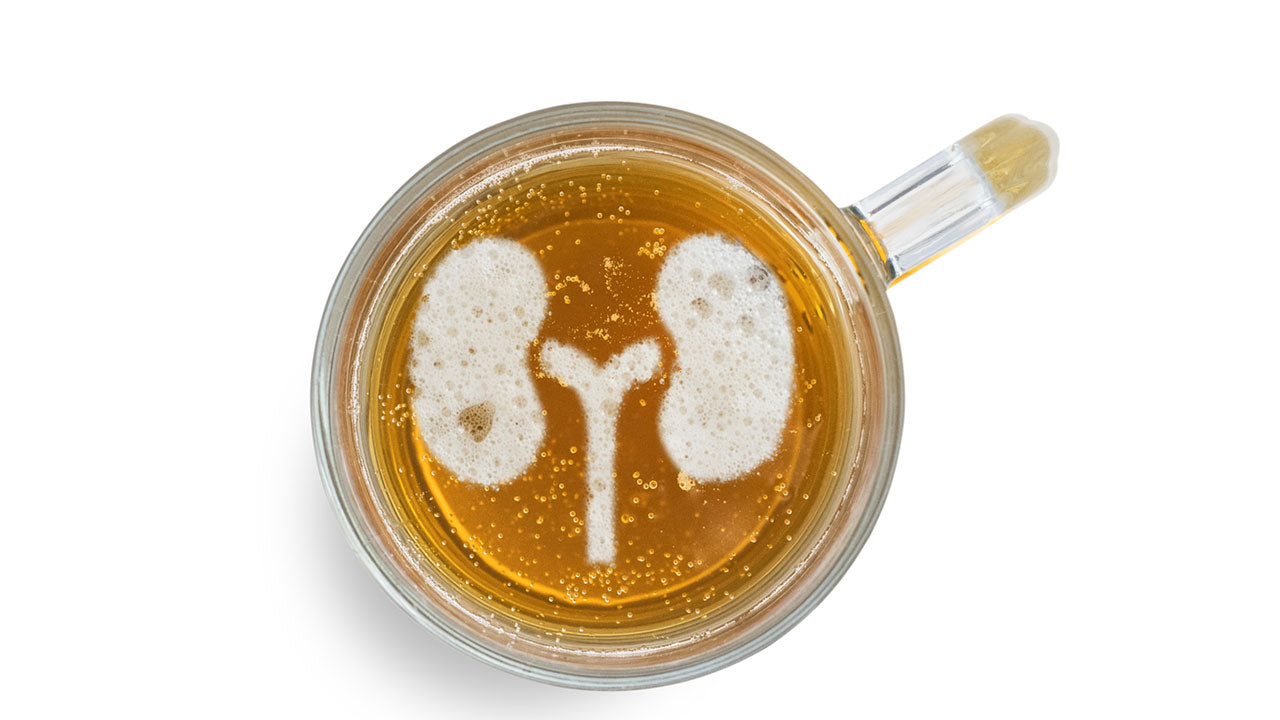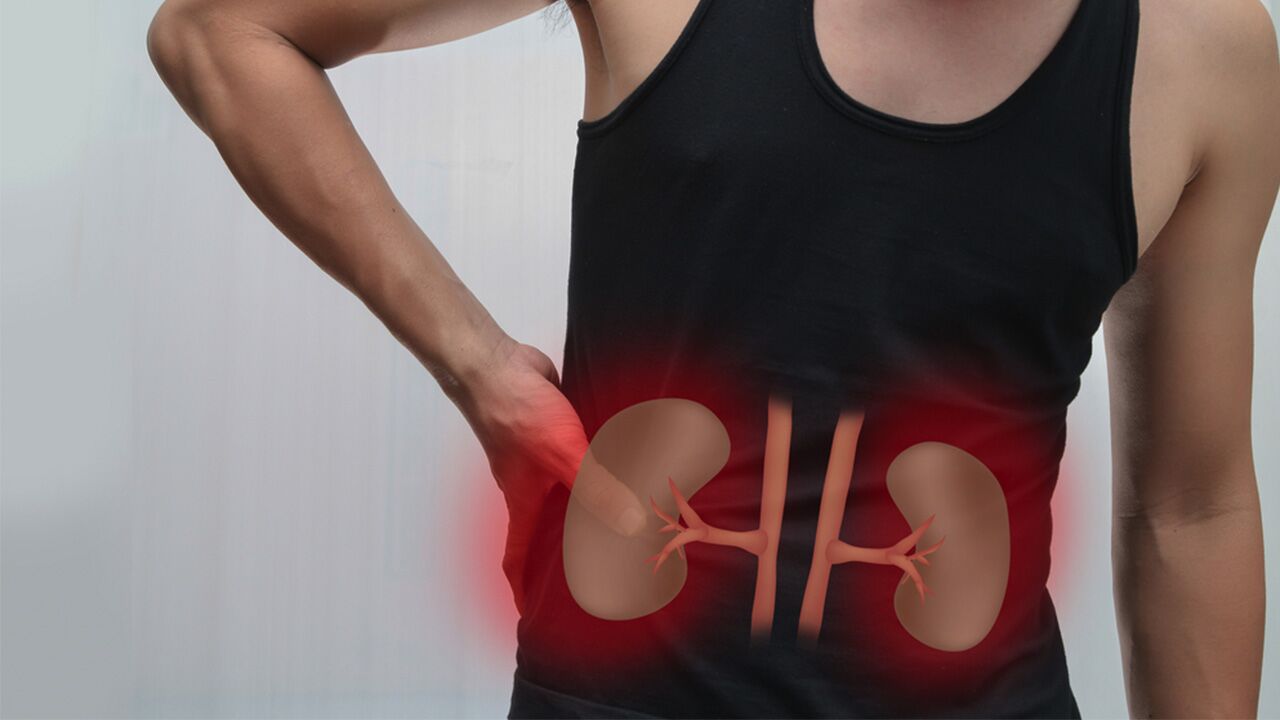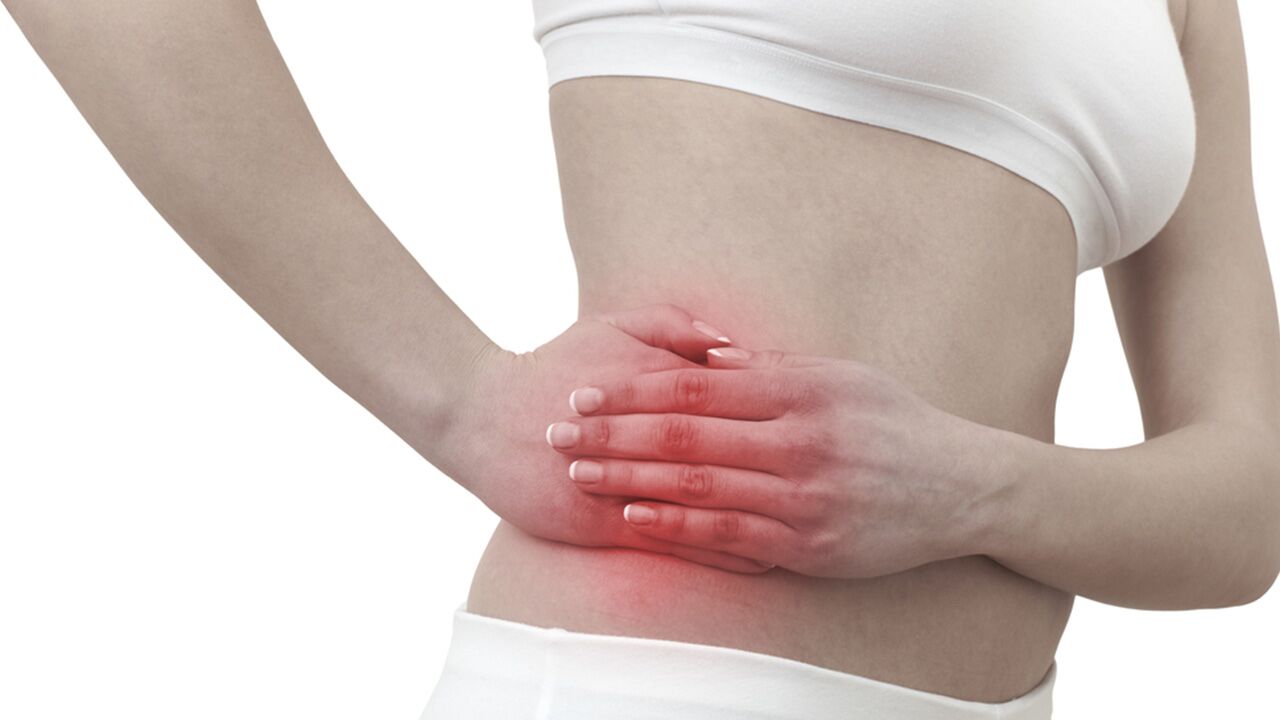Kidney Pain After Drinking Alcohol: How Worried Should You Be?
 By: by Amino Science
By: by Amino Science

The most detrimental effect of alcohol overconsumption, aside from any personal or psychological problems that arise, is the impact alcohol has on our detox organs: the liver and the kidneys. Imbibing a harmful substance like alcohol regularly overtaxes these organs with the effort of clearing out the poison, opening us up to certain risk factors associated with alcohol abuse. Heavy drinkers or those who engage in binge drinking are doing even more harm than those who drink in moderation, and alcohol abuse could lead to serious kidney problems. If you experience kidney pain after drinking alcohol, we have the information you need on the possible causes.
How the Kidneys Function and Where They Are Located
Our kidneys are part of the system known as the urinary tract, which also includes our bladders and ureters. Kidney health is essential for filtering toxins and waste out of our blood and transferring those substances to our urine for elimination from the body. The kidneys also keep our electrolyte and fluid levels balanced, and they are directly impacted by the excessive intake of alcohol.
Our kidneys are vital to our survival, and luckily they are one of many paired organs and parts our bodies have, like our eyes, ears, testes/ovaries, lungs, limbs, adrenal glands, and more. What's fortunate about that is it's quite possible to live with only one kidney, a fact that allows healthy, living people to donate one of their kidney organs to save the life of someone who has lost the use of both.
The kidneys are about the size of our fists and are located below the rib cage on either side of our spines. Kidney pain may be experienced as back pain, but if there is kidney damage resulting from alcohol use, other symptoms may occur. We review the symptoms of kidney damage and kidney failure further along in this article, but first let's discuss how alcohol interacts with the kidneys.
Alcohol's Effect on the Kidneys
According to the National Kidney Foundation, alcohol harms the kidneys in the following ways.
- Interruption of function: High blood alcohol levels can cause changes in the function of the kidneys, interrupting the prime objective of these organs, which is filtering the blood.
- Interference with fluid levels: Another principle role of the kidneys is fluid regulation, and alcohol as a diuretic forces frequent urination and causes dehydration and possible kidney stone formation (more information on kidney stones below).
- Elevated blood pressure: Consumption of alcohol frequently causes high blood pressure, which increases the risk of kidney disease and other cardiovascular health problems.
- Interrelated liver damage: Chronic alcohol consumption can cause liver disease and liver failure, disrupting the rate of blood flow between it and the kidneys and detrimentally impacting all of them.
Some of these impacts won't be felt until they cause you pain, or lead to other health conditions with recognizable symptoms. If you suspect you've overdone it on alcoholic beverages, seek medical advice before being prompted by severe pain: your doctor may be able to detect the early signs of kidney stressors before they cause irreversible damage.

Kidney Pain After Drinking Alcohol: Symptoms
Here is a list of symptoms that may indicate there is something wrong with your kidneys. Seek medical advice for a specific diagnosis if you experience:
- Stabbing or dull pain in your mid-lower back (on either or both sides)
- Pain between the buttocks
- Chills
- Fever
- Unexplained fatigue
- Loss of appetite
- Headache
- Nausea
- Vomiting
- Trouble sleeping
- Worsening kidney-area pain after sleeping
- Painful urination
- Blood in urine
Kidney Pain After Drinking Alcohol: Possible Causes
Here are some of the potential causes of alcohol-related kidney pain.
1. Dehydration
Because alcohol is a diuretic, it can cause severe dehydration when over-consumed, and in fact dehydration is one of the biggest culprits in causing the symptoms of a hangover (like headache). When we drink alcohol in excess, it overrides our kidneys in the area of water retention and balance, not only flushing more water than necessary out of our systems, but also the vitamins, salts, and electrolytes we need along with that water. This is why many a hangover recovery involves drinking a sports drink full of electrolytes or (more problematically) a hair-of-the-dog cure in the form of a spicy Bloody Mary.
Extreme dehydration can cause palpable kidney pain. Water is the best cure for dehydration, while sugary drinks should be avoided after a hard night of drinking. In severe cases, you may need to visit a doctor for an IV fluid.
2. Kidney Stones
When worrying about how alcohol affects the kidneys, many wonder, "Can alcohol cause kidney stones?" Dehydration can, and excessive alcohol consumption quickly induces dehydration.
When there isn't enough fluid available to filter out certain substances like calcium or uric acid through urine, those substances will deposit in the kidneys and form into stones. Not only can alcohol contribute to the formation of the stones, but if you have kidney stones already, extreme dehydration can also cause them to move, resulting in kidney pain and (if they're small enough to pass without medical intervention) pain throughout your urinary tract.
If you suspect you have kidney stones, increase your water consumption and consult with a medical professional for assistance and possible medication to help break them up. According to the Mayo Clinic, kidney stone diagnoses may involve blood tests, urine tests, imaging tests, and tests on any passed stone to analyze its content in the hopes that such information will help prevent future stones from forming.
3. Hydronephrosis
Hydronephrosis is a condition characterized by one (or two) swollen kidneys, filled with urine due to an obstruction or blockage of the urinary tract. This could be caused by kidney stones, and may present with flank pain or an inability to urinate.
This condition requires immediate medical attention, and treatment may involve antibiotics if the blockage is caused by a kidney infection instead of kidney stones.
4. Kidney Infection
A kidney infection can come about due to a number of causes, including bacteria that enters through the urethra and bladder, and then moves up to one (or both) kidneys. This would be a UTI (urinary tract infection), and drinking alcohol can worsen the severity of a UTI.
A UTI can be a minor infection, but if it travels to and takes hold in the kidneys, it can cause lasting kidney damage and even kidney failure if it isn't treated successfully in time. It's important not to hesitate in seeking advice from a health care professional, and it may be advisable to abstain from drinking if you have a UTI, and definitely if you are taking antibiotics to treat a UTI or any other infection.
5. Liver or Kidney Disease
Liver disease and kidney disease are conditions that can be caused by long-term alcohol abuse, sometimes as part of end-stage alcoholism and death. While it's not a concern after one night of binge drinking, if you habitually over-imbibe, the damages can accumulate in the liver and cause fatty liver disease or scarring that leads to cirrhosis. Once the liver becomes compromised, the blood flow to the kidneys is interrupted, instigating a domino effect of vital organ damage and possible shutdown.
Should kidney disease develop, it could be due to alcohol or other contributing health conditions that alcohol exacerbates, including high blood sugar, type 2 diabetes, and high blood pressure. Chronic kidney disease can lead to kidney failure, which, like liver failure, can sometimes only be reversed by organ transplantation.
Don't Kid Around with Kidney Function
Excessive drinking can lead to very painful and serious health consequences, and while there are natural ways to support your kidney health with a kidney flush diet, as Benjamin Franklin once pointed out, "an ounce of prevention is worth a pound of cure."
The best thing you can do to prevent kidney damage caused by heavy drinking is to detox from alcohol and either quit drinking entirely or drink only in moderation. Swapping hard liquor drinks for low-alcohol beer and wine can help you avoid drinking too much alcohol, as can making sure you stay adequately hydrated. Drink a glass of water for every alcoholic drink to help balance out the amount of alcohol consumed. If you do drink, be sure to drink responsibly, for the sake of your kidneys and your quality of life.
For overall kidney and liver health, take an essential amino acid supplement daily.

Up to 25% off Amino
Shop NowTAGS: conditions
Join the Community
Comments (0)
Most Craveable Recipes




 833-264-6620
833-264-6620



















